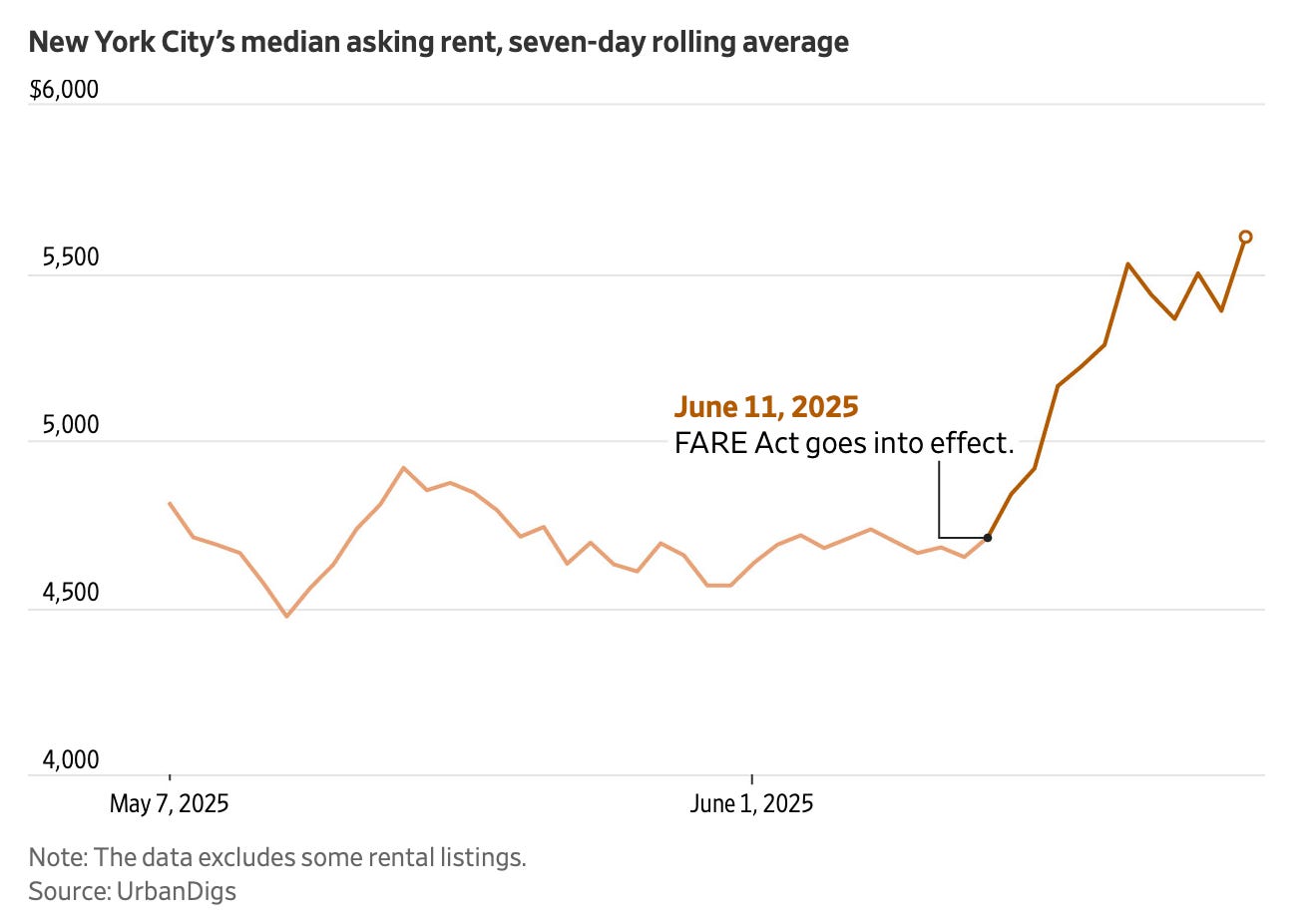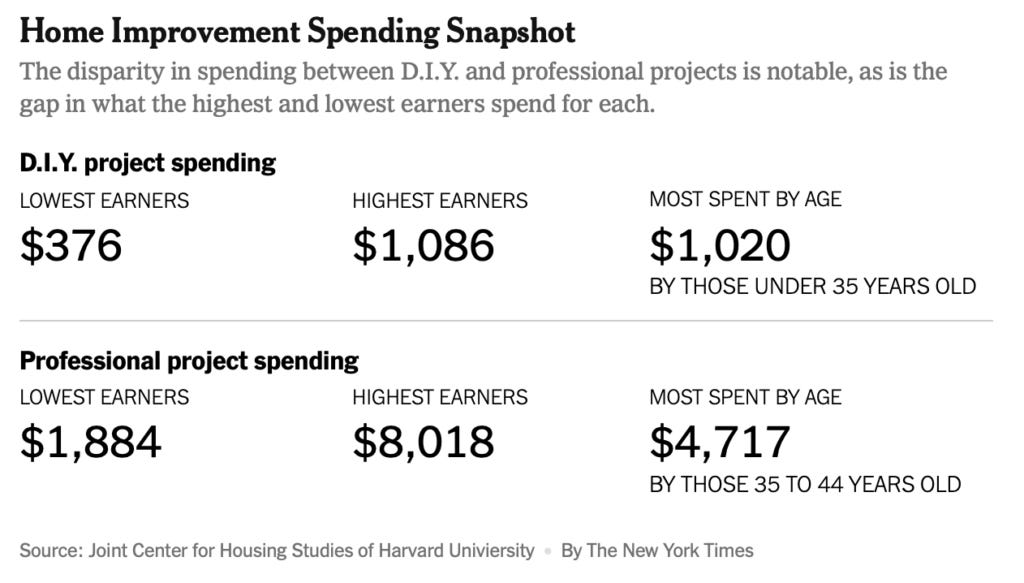The NYC Housing Affordability Crisis Is Not Understood By Its Voters
NYC May End Up With An Anti-Real Estate (Landlord/Developer) Mayor
The Real Estate Industry Accounts For More Than Half Of NYC Tax Revenue
NYC Rents Will Probably Continue To Push Higher In The Election Aftermath
The NYC Democratic primary results gave the win to 33-year-old state assemblyman Zohran Mamdani. The real estate industry was stunned by the results, especially after the winning candidate’s comments about freezing rents. The industry was still reeling from the passing of the FARE Act, which promoted the misleading idea that it would save tenants money on rent. I was on a panel yesterday with my friend Noah Rosenblatt of Urban Digs, who created this chart for a WSJ article: New York’s Housing Crisis Is So Bad That a Socialist Is Poised to Become Mayor [gift link], about the election results.
We took a question at the end of yesterday’s event, and one was (paraphrasing): “I’m not trying to be political, but can we talk about the 900-pound gorilla in the room, the results of the NYC election.” In the general election, Cuomo and Adams may run as independents, but it appears that the election has been decided, as the electorate is predominantly comprised of blue voters. I offered an answer in the WSJ piece to explain why this happened: “When you have any municipality where its workers can’t afford to live in the city that they work, there’s a real incentive to change leadership,” said Jonathan Miller, chief executive of the New York City real-estate appraisal firm Miller Samuel.” In fact, this is a key characteristic of the national housing affordability crisis.
Developers and landlords have long been painted as the bad guys, with examples of bad players on the margin emphasized, especially since the massive 2019 rent law change, which is counterproductive in the effort to create more housing. The candidate’s comments about freezing rents suggest a limited understanding of rental economics. If rents are frozen, costs continue to rise, and eventually, landlords walk away from their assets. Think Fort Apache, The Bronx, a movie starring Paul Newman. I saw the piles of rubble in the East Village neighborhood firsthand when we were appraising apartments there in the late 1980s. The first step for landlords, when rents are capped, is to throttle down repairs and maintenance. Cuomo ran on a platform of developing more housing, but the voters wanted to make rent restrictions more strict. Investors will likely reduce their interest in financing multi-family development as a result.
Tighter rent restrictions make open market rentals more expensive as landlords use the higher open market rents to cover the rising expenses of stabilized housing with frozen rents. It’s just basic math. While NYC has plans to add more housing, I would expect those development plans to be curtailed as the availability of capital becomes more limited. And that means higher rents city-wide outside the umbrella of rent stabilization.
Final Thoughts
A new mayor is going to take the reins of NYC, which has an established bias against the institutions that can make housing more affordable: landlords and developers. Less capital will likely be deployed in NYC for real estate development, translating into fewer multi-family housing units being built, and thus, rents will remain elevated and continue to rise. I hope the mayor surprises everyone and enables more housing development, but at first glance, it’s not apparent. Sigh.
The Actual Final Thought – Sometimes, your initial thought about a concept isn’t correct and can be correctedwith deeper thinking like this. Ha.
[Podcast] What It Means With Jonathan Miller
The latest episode: Thinking About Housing and Bitcoin is just a click away. The podcast feed can be found on all three platforms we use:
Apple (within the Douglas Elliman feed) Soundcloud Youtube
Did you miss the previous Housing Notes?
February 19, 2025
Cementing Our DIY Housing Relationship On The Floor
Image: NY Times





